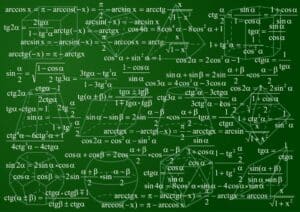How Is Algebra Useful in Everyday Life?
Algebra is the most important aspect of math that you learn in school. It isn’t just about calculating numbers and letters, it’s also the foundation of critical thinking and problem-solving skills that are useful in a variety of situations, according to Wonderopolis.
(Looking for a “Graduate math program” Contact us today!)

Algebra is not only a subject taught in schools but also a valuable tool that can be applied in numerous real-life situations. Even if we may not consciously realize it, we encounter algebraic concepts and problem-solving techniques in our everyday lives. From practical tasks like decorating a room or calculating costs to more complex endeavors such as financial planning or optimizing resources, algebra plays a crucial role in decision-making and problem-solving.
One practical application of algebra in daily life is in home decorating. When homeowners want to paint a room or determine the amount of carpeting needed, algebra comes into play. By applying algebraic formulas to calculate the area of a room and considering factors such as dimensions and coverage, individuals can accurately estimate the amount of paint or carpet required. This knowledge enables them to make informed decisions when purchasing materials and avoid unnecessary waste or shortage.
Additionally, algebra proves to be valuable in financial matters. Whether it’s calculating the cost of a purchase, determining the time required to save for a car, or budgeting expenses, algebraic principles provide the necessary tools for financial planning. By understanding concepts like percentages, interest rates, and equations, individuals can make informed decisions regarding their financial goals and manage their money effectively.
In everyday tasks, accuracy is essential. Algebra helps ensure that calculations and measurements are correct, providing peace of mind and avoiding potential errors. From balancing a checkbook to creating a shopping list, algebraic reasoning enables individuals to carry out tasks with precision and confidence.
In more complex scenarios, algebra is indispensable for problem-solving. For example, when determining the perimeter of a fence or finding the best deal on a car, algebraic equations and inequalities can be used to analyze various factors and make informed choices. Algebra allows individuals to evaluate different options, weigh the costs and benefits, and arrive at optimal solutions.
Algebra’s practicality extends even to cooking. When faced with limited ingredients or needing to adjust a recipe’s quantity, algebraic equations can come to the rescue. By applying algebraic principles, such as scaling or proportionality, individuals can halve or double a recipe, modify ingredient amounts, or even substitute items. This flexibility allows for creativity and resourcefulness in the kitchen, making algebra a useful tool for culinary endeavors.
By understanding the basics of algebra, individuals can develop critical thinking skills and problem-solving abilities that extend far beyond the classroom. The applications of algebra are vast and diverse, ranging from simple tasks to complex decision-making processes. Acquiring a solid foundation in algebra equips individuals with the tools needed to tackle real-life challenges, make informed choices, and approach various situations with confidence and logical reasoning.
If you ever find yourself struggling to grasp algebraic concepts or seeking additional support to enhance your understanding, online resources like StudyPug offer comprehensive tutorials and lessons designed to help students excel in algebra. Taking advantage of such platforms can provide the guidance and reinforcement needed to master algebraic skills and apply them effectively in everyday life. Embracing algebra as a valuable and versatile tool ensures that you are equipped with problem-solving abilities that will benefit you throughout your lifetime.

